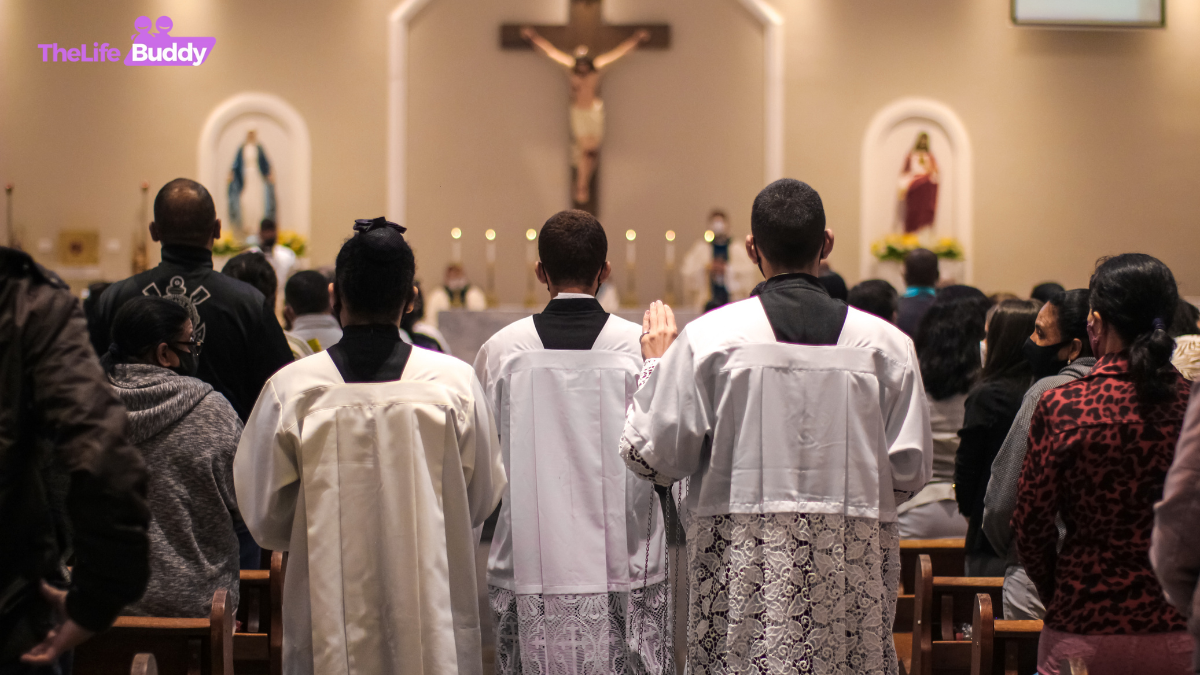What To Know About Catholic Marriage Preparation and Pre-Cana

Entering into marriage is a profound commitment that carries spiritual, emotional, and practical dimensions, especially in the Catholic faith. For those seeking to marry within the Catholic Church, the process of preparation is not merely administrative but deeply rooted in fostering a strong foundation for a sacramental union. Catholic marriage preparation often involves a program called Pre-Cana, which plays a pivotal role in preparing couples for the journey ahead. Let's delve into what Pre-Cana entails and its significance in the context of Catholic marriage.
What is Pre-Cana?
Pre-Cana is a program within the Catholic Church designed to prepare engaged couples for the sacred covenant of marriage. The term "Pre-Cana" originates from the biblical story of the Wedding at Cana, where Jesus performed his first miracle, turning water into wine. This program typically involves a series of sessions or workshops facilitated by clergy, trained couples, or other professionals experienced in marriage counseling.
The aim of Pre-Cana is multifaceted. It provides couples with a deeper understanding of the sacrament of matrimony, reinforces the spiritual and practical aspects of married life, and equips them with tools to navigate challenges that may arise. While the structure of Pre-Cana can vary between dioceses and parishes, the core elements often include discussions on communication, conflict resolution, financial management, and the significance of faith in marriage.
Participating in Pre-Cana is usually a prerequisite for couples intending to marry in the Catholic Church. It serves not only as a formative experience but also as a means for the Church to ensure that couples are well-prepared for the lifelong commitment they are about to undertake.
What do you learn in Pre-Cana?
In Pre-Cana, couples engage in a range of discussions and activities tailored to enrich their understanding of marriage from a Catholic perspective. One key aspect of Pre-Cana is exploring the theological and spiritual dimensions of marriage as a sacrament. Participants delve into the biblical and doctrinal foundations of matrimony, understanding it not just as a legal contract but as a sacred bond ordained by God.
Additionally, Pre-Cana sessions often focus on practical skills essential for a successful marriage. Topics commonly covered include effective communication strategies, conflict resolution techniques, financial planning, and the roles and responsibilities of spouses within the marriage. These sessions are typically interactive, encouraging couples to reflect on their own relationship dynamics and aspirations.
Moreover, Pre-Cana provides a safe space for couples to address potential challenges and concerns they may have about marriage. Through guided discussions and exercises, couples can openly explore topics such as family dynamics, expectations, intimacy, and the integration of faith into their daily lives.
Ultimately, the goal of Pre-Cana is to empower couples with the knowledge, tools, and spiritual grounding necessary to embark on a lifelong journey of love, commitment, and faith within the Catholic tradition.
What lessons can Non-Catholics learn from this?
While Pre-Cana is specifically tailored for Catholic couples, its teachings and principles hold valuable insights for all couples, irrespective of religious affiliation. Non-Catholic couples can benefit significantly from the core elements emphasized in Pre-Cana.
Firstly, the emphasis on effective communication and conflict resolution is universally applicable. Learning how to communicate openly, listen actively, and navigate disagreements constructively are essential skills for any relationship.
Secondly, the focus on understanding the deeper meaning of commitment and partnership transcends religious boundaries. The discussions on roles, responsibilities, and shared values in marriage can resonate with couples from diverse backgrounds.
Moreover, the spiritual and ethical dimensions explored in Pre-Cana, such as the importance of faith, forgiveness, and mutual respect, offer universal principles that underpin strong and enduring relationships.
In essence, Pre-Cana serves as a testament to the universal truths and values that underlie successful marriages. Non-Catholic couples can draw inspiration from its teachings to cultivate stronger, more meaningful relationships built on love, trust, and shared spirituality.
Catholic marriage preparation through programs like Pre-Cana not only equips couples with practical skills but also fosters a deeper spiritual understanding of marriage. Its lessons on communication, commitment, and faith resonate beyond religious boundaries, offering valuable insights for all couples embarking on the journey of marriage.


